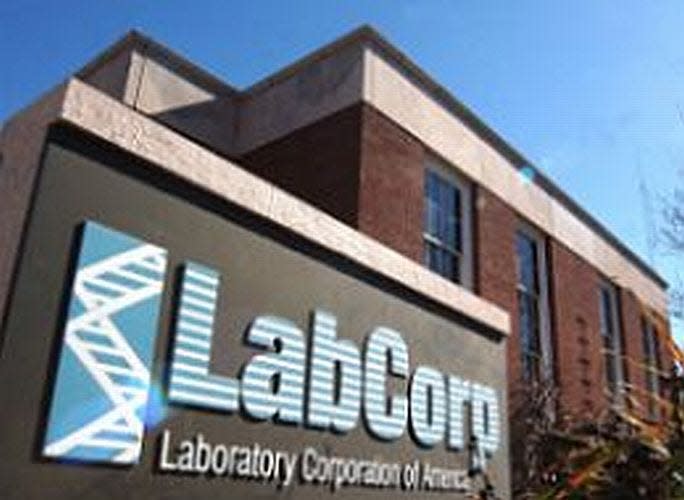Alamance County’s top employer accused of misusing retirement funds

Laboratory Corporation of America has more than 70,000 employees, more than 3,000 in Alamance County, and one of them says the company’s retirement plan is spending six times what it should on administration in a federal lawsuit significantly cutting into retirement funds.
Subscribers support local journalism, the Times-News is grateful
LabCorp has long been Alamance County’s largest private employer, and most of those employees are eligible for the Laboratory Corporation of America Holdings Employees’ Retirement Plan. Damian McDonald, the only named plaintiff in what seeks to be a federal class-action suit open to all LabCorp employees participating in the retirement plan, is a current employee, though the suit does not specify where he works.
Alamance-Burlington: Schools improve, still short of pre-pandemic performance
Like most modern retirement plans, LabCorp’s is a 401k defined contribution plan, meaning employees put their own money into it along with company matching funds, and the plan invests those funds. Fidelity Investments Institutional Operations Company is the plan’s “recordkeeper,” which can be a misleading description, according to the suit, because its services can include managing accounts, investment consultation and claims processing.
More: Alamance County's Camp Frontier faces allegations of abuse in the 1980s
Fidelity is also the company LabCorp is overpaying, according to the suit, in three ways.
The first is a direct per-participant fee. That is a standard charge for recordkeepers, but Fidelity charged the plan $40 to $48 per participant between 2015 and 2020 while plans of similar size pay no more than $25, according to the suit. In a separate lawsuit against Fidelity’s retirement plan, that company stipulated that its own services ranged in value from $14 to $17 per participant, and Fidelity itself charged similar plans for other companies significantly less.
LabCorp failed to negotiate a better rate or seek out bids from competing recordkeepers, according to the suit.
Fidelity also gets indirect payment in two ways – the first is revenue sharing which is based on asset values. While not always a bad approach, according to the suit, it is a simple way to hide fees since it is handled in-house. It is also not really tied to the service the recordkeeper provides but to the value of market assets, which is sometimes compared to paying a plumber for the volume of water going through a pipe instead of a flat fee for plugging a leak in it.
Then there is “float interest.” When participants put money in or take it out of the $3.9 billion plan, it passes through a Fidelity clearing account where it accrues interest for however long it takes to complete the transaction. LabCorp agreed to let Fidelity keep that money, according to the suit, and did not even track how much Fidelity makes off the interest on participant dollars.
Counting these direct and indirect payments to Fidelity, the LabCorp retirement plan paid something like $150 per participant, according to the suit, when it should have paid no more than $25. The Times-News cannot confirm that figure.
Contributions and investments accumulate over time in these kinds of retirement accounts, so small costs can lead to large losses long-term, and, according to the suit, the U.S. Department of Labor says over 35 years, a 1% increase in fees leads to a 28% difference in returns.
The lawsuit is asking for the difference between what retirees get from the plan and what they would have gotten under better management.
The plan had more than 55,000 participants at the end of 2020 and about $3.9 billion in assets, according to the suit, making it what it calls a “mega plan.” Financial managers compete to administer plans like that, but LabCorp has no financial incentive to take advantage of that competitive advantage since it’s not the company’s money and not the company’s returns, according to the suit.
However, the manager of this kind of retirement plan is considered a fiduciary, meaning it has a duty to manage these funds in the interest of the employees contributing to them and take prudent actions to make sure they are treated fairly.
A January U.S. Supreme Court decision in Hughes v. Northwestern University put more responsibility on employers offering defined contribution retirement plans to make prudent decisions on behalf of employees trusting them with their retirement earnings. That decision has opened many large employers to suits like the one LabCorp is facing now and there are many firms filing them.
LabCorp has not yet responded to the lawsuit and chose not to comment on ongoing litigation for this story.
This article originally appeared on Times-News: Alamance County's top employer accused of wasting retirement funds

